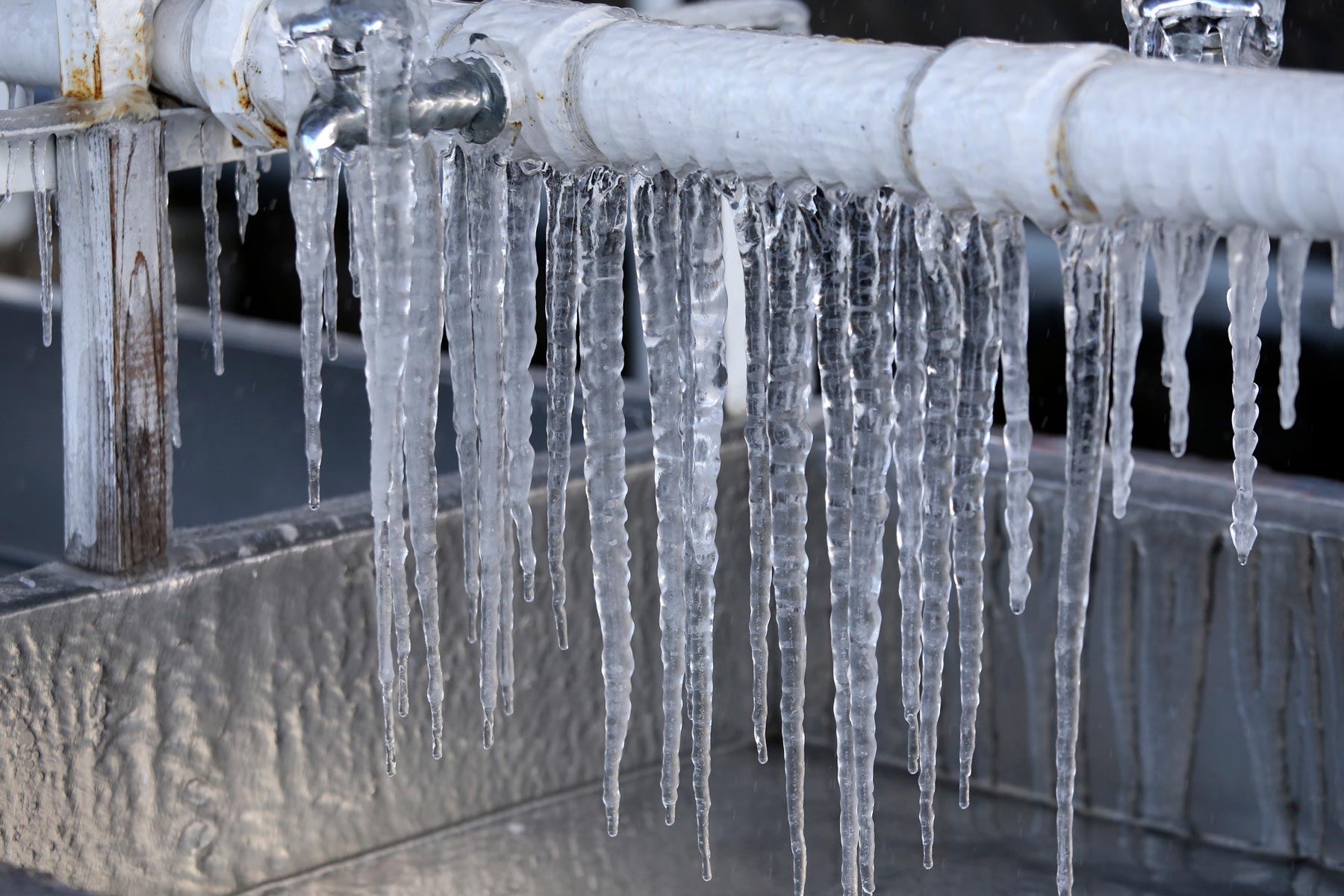Important Advice to Prevent Frozen Pipes in Winter
Important Advice to Prevent Frozen Pipes in Winter
Blog Article
Do you find yourself looking for information and facts around Preventing and dealing with frozen pipes?

Winter can wreak havoc on your plumbing, particularly by freezing pipelines. Right here's just how to prevent it from occurring and what to do if it does.
Intro
As temperature levels decline, the danger of icy pipes increases, potentially bring about pricey repairs and water damage. Comprehending exactly how to stop icy pipes is vital for house owners in cold climates.
Prevention Tips
Shielding susceptible pipes
Cover pipelines in insulation sleeves or utilize heat tape to shield them from freezing temperatures. Focus on pipelines in unheated or outside areas of the home.
Home heating methods
Maintain interior areas sufficiently heated, especially locations with plumbing. Open cabinet doors to enable cozy air to circulate around pipelines under sinks.
Just how to recognize frozen pipelines
Try to find lowered water flow from faucets, unusual odors or noises from pipes, and visible frost on exposed pipes.
Long-Term Solutions
Structural changes
Consider rerouting pipelines far from outside walls or unheated areas. Add additional insulation to attic rooms, cellars, and crawl spaces.
Updating insulation
Buy high-quality insulation for pipelines, attic rooms, and walls. Appropriate insulation aids maintain consistent temperature levels and lowers the risk of icy pipes.
Securing Outside Pipes
Garden hoses and exterior faucets
Separate and drain pipes garden pipes prior to wintertime. Install frost-proof faucets or cover outside taps with protected caps.
Comprehending Frozen Pipes
What triggers pipelines to freeze?
Pipelines freeze when subjected to temperature levels below 32 ° F (0 ° C) for prolonged periods. As water inside the pipelines freezes, it increases, putting pressure on the pipeline walls and potentially causing them to burst.
Dangers and problems
Frozen pipes can bring about water system interruptions, residential property damages, and costly fixings. Burst pipes can flooding homes and cause considerable structural damages.
Indicators of Frozen Water Lines
Identifying icy pipes early can stop them from bursting.
What to Do If Your Pipes Freeze
Immediate activities to take
If you believe frozen pipes, keep taps open up to ease pressure as the ice melts. Utilize a hairdryer or towels taken in hot water to thaw pipes slowly.
Conclusion
Preventing icy pipelines needs aggressive procedures and fast feedbacks. By comprehending the causes, indicators, and preventive measures, homeowners can shield their plumbing throughout winter.
5 Ways to Prevent Frozen Pipes
Drain Outdoor Faucets and Disconnect Hoses
First, close the shut-off valve that controls the flow of water in the pipe to your outdoor faucet. Then, head outside to disconnect and drain your hose and open the outdoor faucet to allow the water to completely drain out of the line. Turn off the faucet when done. Finally, head back to the shut-off valve and drain the remaining water inside the pipe into a bucket or container. Additionally, if you have a home irrigation system, you should consider hiring an expert to clear the system of water each year.
Insulate Pipes
One of the best and most cost-effective methods for preventing frozen water pipes is to wrap your pipes with insulation. This is especially important for areas in your home that aren’t exposed to heat, such as an attic. We suggest using foam sleeves, which can typically be found at your local hardware store.
Keep Heat Running at 65
Your pipes are located inside your walls, and the temperature there is much colder than the rest of the house. To prevent your pipes from freezing, The Insurance Information Institute suggests that you keep your home heated to at least 65 degrees, even when traveling. You may want to invest in smart devices that can keep an eye on the temperature in your home while you’re away.
Leave Water Dripping
Moving water — even a small trickle — can prevent ice from forming inside your pipes. When freezing temps are imminent, start a drip of water from all faucets that serve exposed pipes. Leaving a few faucets running will also help relieve pressure inside the pipes and help prevent a rupture if the water inside freezes.
Open Cupboard Doors
Warm your kitchen and bathroom pipes by opening cupboards and vanities. You should also leave your interior doors ajar to help warm air circulate evenly throughout your home.

We are very inquisitive about Helpful Tips to Prevent Frozen Pipes this Winter and I am assuming you enjoyed reading our article. Are you aware of another individual who is very much interested in the niche? Why not share it. Thanks a lot for going through it.
Book 24/7 Report this page